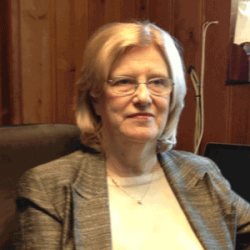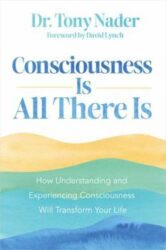The Wealth and Happiness of Nations
Karin Mizgala is co-founder of Money Coaches of Canada, a national network of fee-for-service money coaches offering a holistic approach to money management that includes helping people get clear on what is important to them and how to connect their finances to their core values.
Karin is also co-founder of the Women’s Financial Learning Centre and co-author of UNSTUCK: How to Get Out of Your Money Rut and Start Living the Life you Want and Your Money Map. She is frequently interviewed in the Globe and Mail, Wealth Professionals, the Financial Post, Money Sense and Yahoo Finance.
Karin has been practicing the TM technique for 10 years.
Helen: In a previous interview you said that wealth comes not just from getting more, but from giving more and from feeling connected to our communities. But in handling our wealth, as we normally define it, can you give a few principles we should keep in mind?
Karin: Finances can seem very complicated, but on a certain level it is all very simple. Looking at our individual financial well-being we need to take a step back and to do three things:
- We need to be clear on what is important to us and what our values and beliefs are.
- We then need to look at our money from that more fundamental place, to have a plan and be more organized with our money and to not be afraid of it.
- We need to hold ourselves accountable to our values and make sure we are financially responsible. We need to know what our cash needs are and what we need to invest for the future. We also need to hold companies and countries accountable as well.
Helen: Hold countries accountable – can you explain?
Karin: Many countries are suffering from levels of debt, both individual and governmental that are untenable and this is leading to huge levels of stress for everyone. This is the result of a single minded focus on growth without considering other more holistic elements. We think the only thing we have to do is “make it bigger stronger faster”, but this is proving to not be enough.
Helen: It does seem that most countries place a lot of emphasis on GDP, but Bhutan has developed a Gross National Happiness Index, which measures its success not only by GDP but also by the mental and physical well-being of its citizens, responsible environmental stewardship and good governance. Would you say that these are valid measures for a country to consider?
Karin: Yes. I think the measurements of the Gross Happiness Index are extremely valid for a country. It is a more comprehensive definition of success and leads to a better result of well-being and happiness. The typical measure for a nation is dollars and cents so Bhutan has done an amazing thing in setting out a new and more expansive way of considering what it takes for citizens to happy, to be human.
If countries organized their finances from the perspective of large and holistic human values, then we would end up with a much more sustainable environment and less stress in society.
Helen: But how exactly does my individual stress affect the whole society? How can one individual affect the whole in a significant way?
Karin: We are all part of a collective and if one member of our group is suffering, it may not consciously impact us but on an indirect level it does. Living in a society where people are happy, taken care of, and have friends and family and support means that our country, and the world, is a better place. And both our personal experience and scientific studies show that making a contribution to the world’s betterment has a high correlation to happiness and well-being.
Interestingly, the Transcendental Meditation technique can help with this. TM has a huge impact on the happiness level of a country by taking care of the happiness of the individual. Our society is just an aggregate of individuals; if individuals are not under a lot of stress then they are unlikely to make the kinds of decisions and create the kind of institutions that do harm to the environment, to each other, and to future generations. There is a natural tendency in a less-stressed person to want to give more and to contribute more and to be ethical. TM has been shown to increase moral reasoning, to reduce the stress, anxiety and depression levels of individuals, and to increase their productivity. TM practice can create individuals who are more connected to others at a profound level, are happy and are high performers. If a sufficient number of citizens of a county were like this, it would have a very positive impact.
About the Author
Helen Creighton is the national director of TM for Women in Canada.
More Posts by Helen
- Finding the Sacred in the TM Experience
- Avoid Burnout and Meet Your Challenges
- Stress, Meditation and Hans Selye: An Ancient Solution to a Modern Problem
- Wealth, Well-Being and the Transcendental Meditation Technique: An Interview with Money Coach Karin Mizgala
- A Writer’s Perspective: An Interview with Sasha Parmasad





